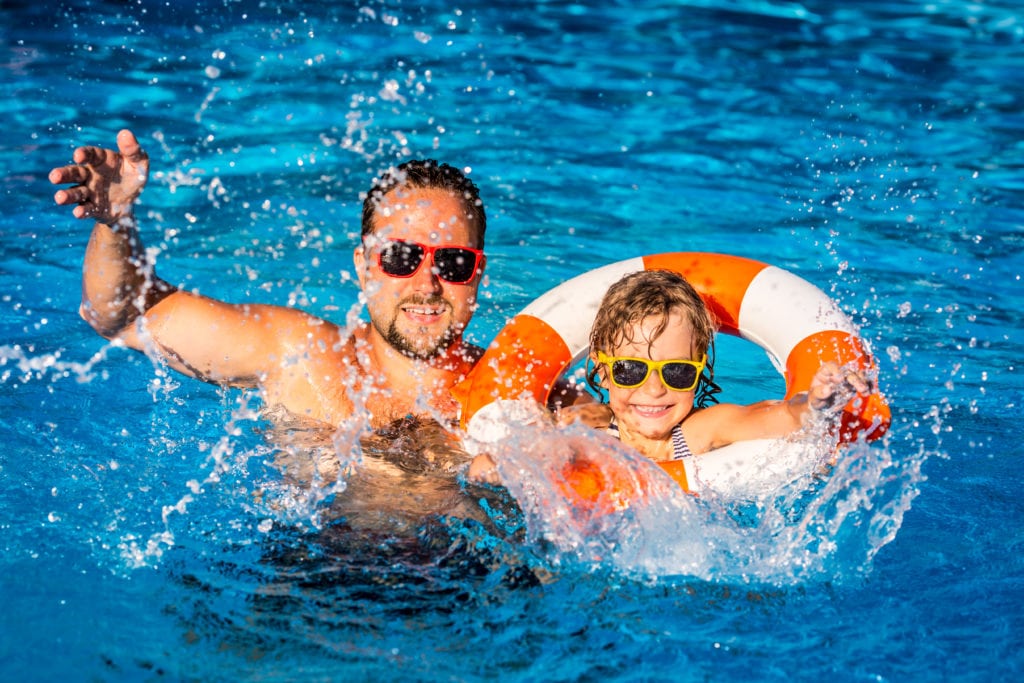Whether it’s a quick dip in the pool or catching waves at the beach, this summer’s itinerary surely includes swimming.

Here are some precautions to keep your children safe around the water.
Always supervise swimmers
Children should never be near bodies of water unless under direct supervision of an adult. While your children are in the water, make sure you avoid distractions such as your cell phone. Keep your attention on your kids! Younger children can drown in less than 2 inches of water. Make sure there is lifesaving equipment, such as flotation devices, nearby if needed.
Check the weather
Before heading toward water, check the weather forecast for storms near your area. According to the National Lightning Safety Institute, you should wait 30 minutes after the last time thunder is heard to resume normal pool activities.
Do not dunk your toddler under water
Submerging your child in water not only may cause undue stress, it could be a safety hazard. Children under 3 years of age who have not been properly trained with swimming lessons do not have the instinct to hold their breath underwater and, therefore, can drown from swallowing large quantities of water.
Slow down
Never allow your children to run near or around a pool. They can easily slip and fall, injuring themselves.
Don’t get in over your head
If your little one is still learning to swim, stay with them in the shallow end. Don’t allow them to venture off on their own. And never allow them to swim in the ocean by themselves. When caught in a rip current, always swim parallel to the shore until exiting the current and then swim into shore.
No food or drinks allowed
Eating, drinking or chewing gum in the pool is never a good idea. This is a choking hazard and can wait until taking a break from swimming. The American Red Cross does not give any set time restrictions when it comes to how long you should wait to swim after eating.
Don’t pretend you’re drowning
Drowning is not a joke—and a child should never pretend to be in danger. Parents and lifeguards need to be able to determine how to react if a serious situation presents itself.
Wear protective gear
Don’t forget the life jackets, Puddle Jumpers, goggles and sunscreen when making a trip to the pool, lake or beach.
Learn CPR
Parents, take a class to earn a certificate in CPR. Locally, classes are offered at Marion CPR, where you can earn your BLS or ACLS. Visit marioncpr.com or call (352) 653-8821 for more information.






